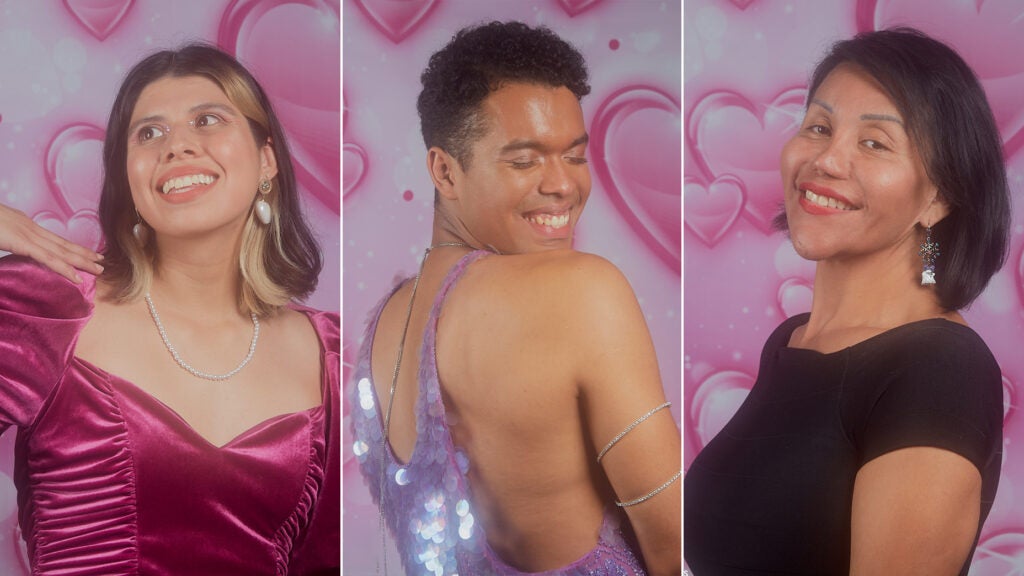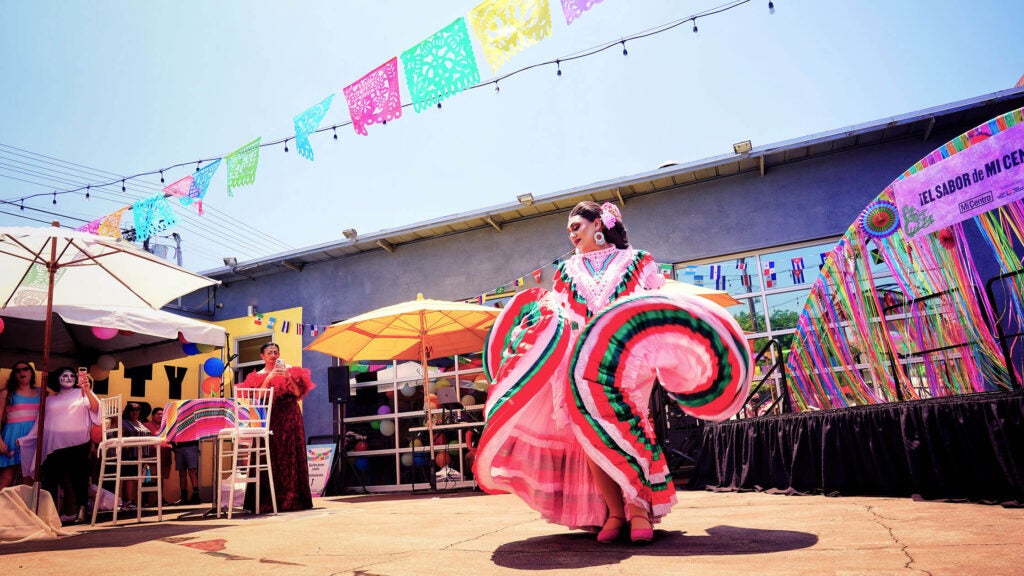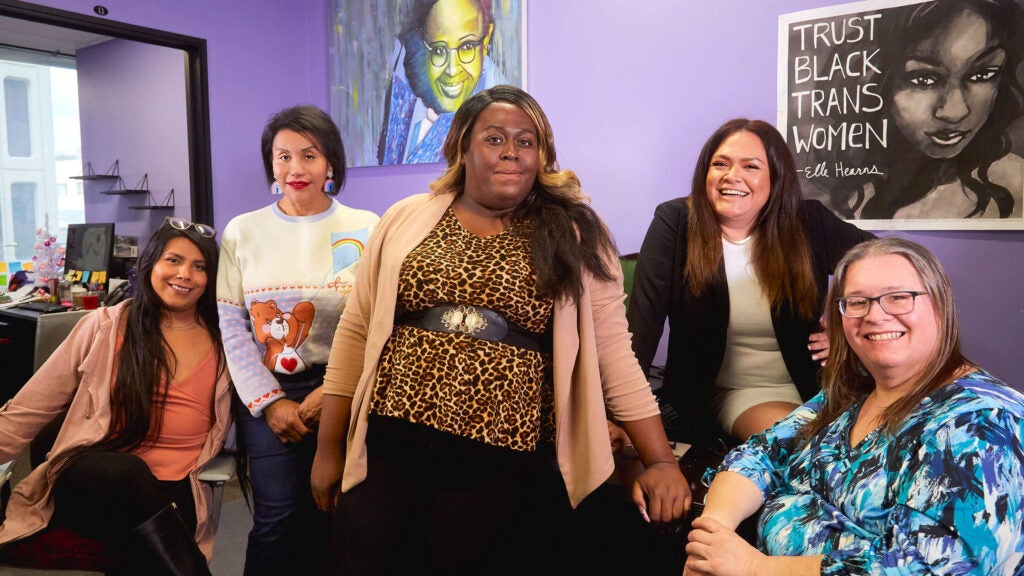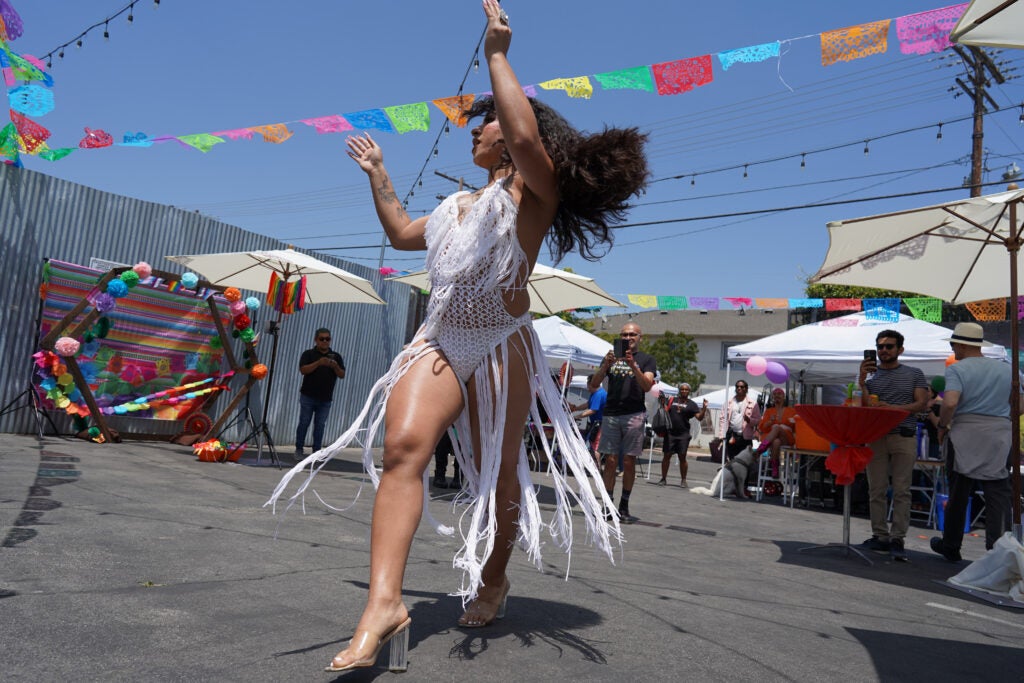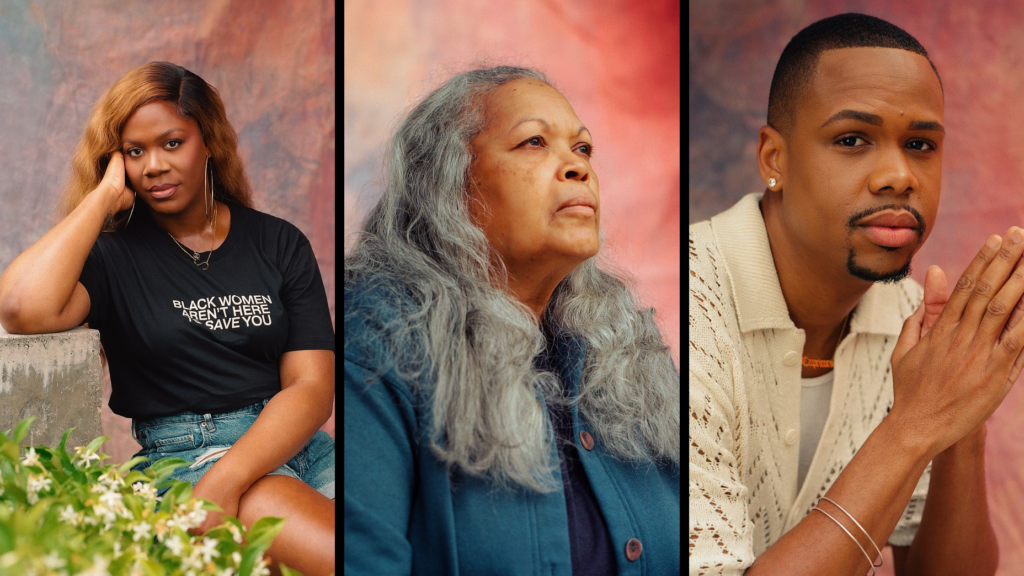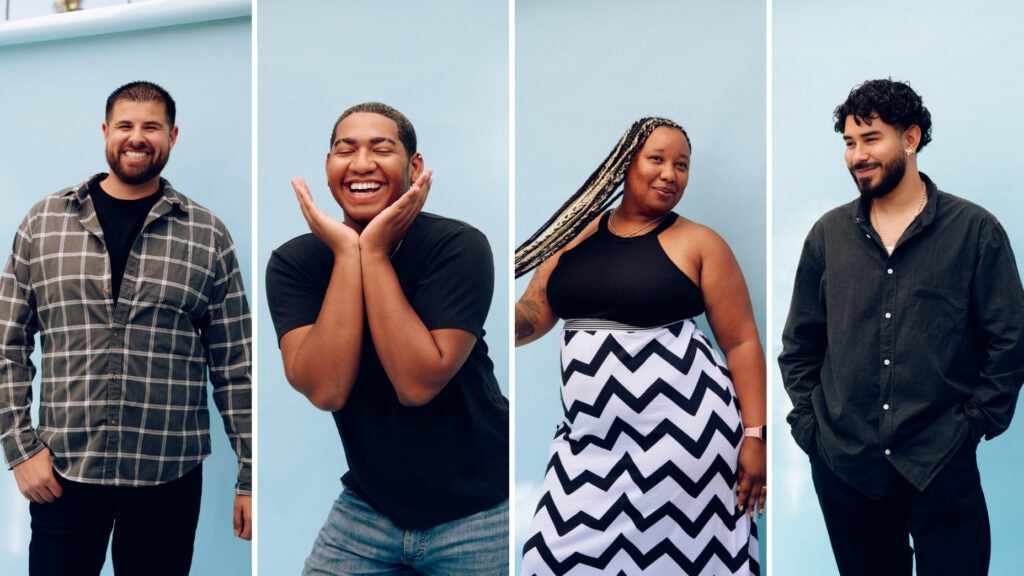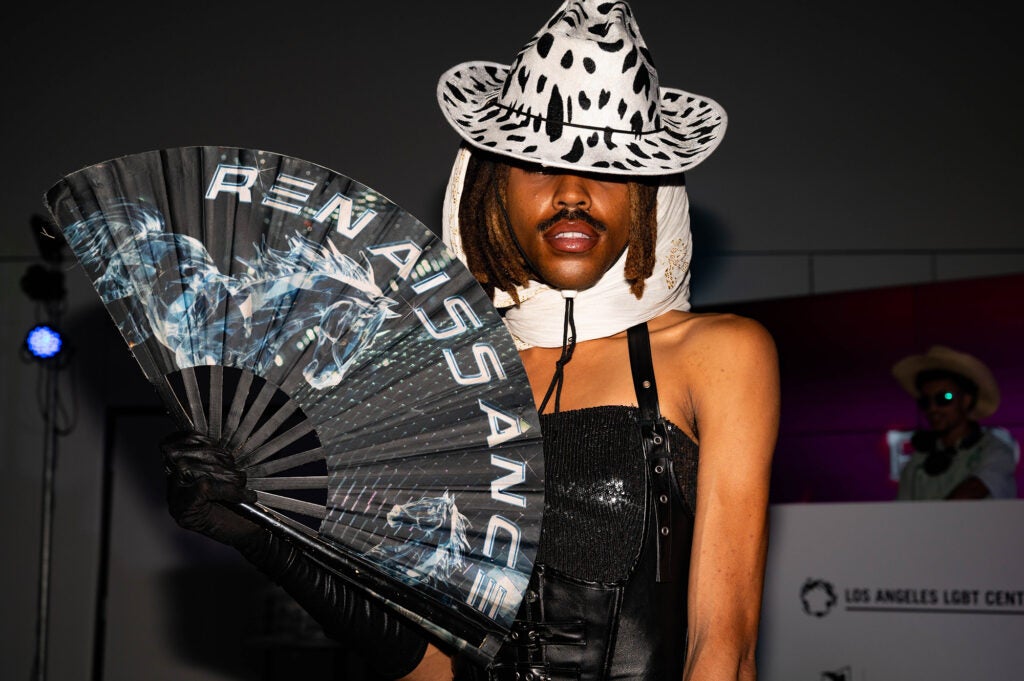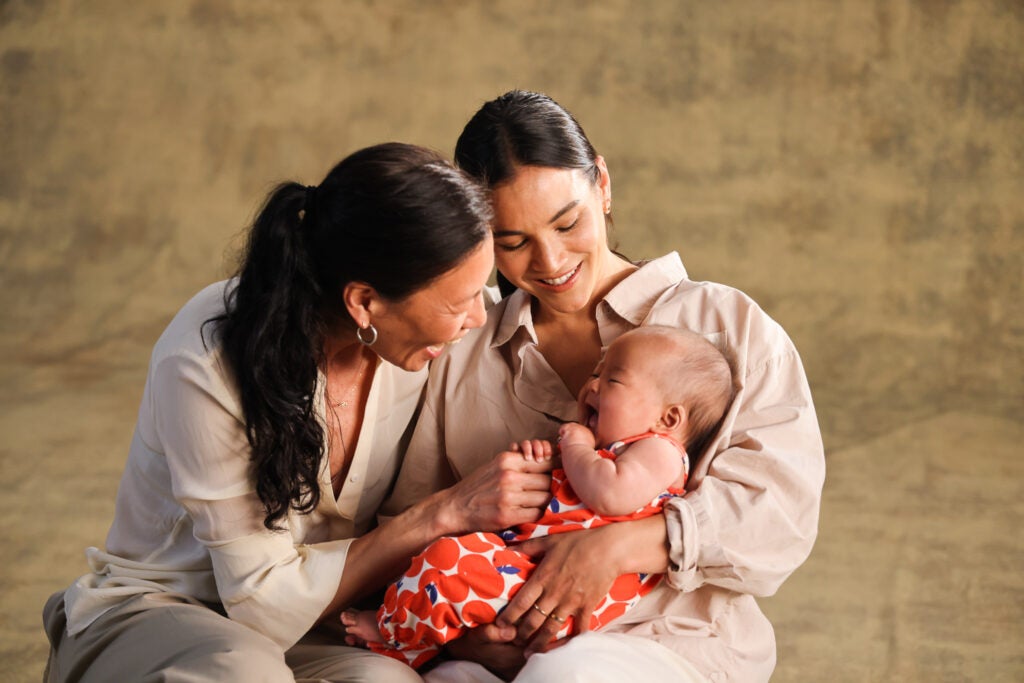Each year, the one-month period between Sept. 15 and Oct. 15 is recognized as Latinx Heritage Month, a celebration of the cultures and contributions of Latinx Americans.
The observation originally began in 1968 as Hispanic Heritage Week before it was expanded to a full month in the ‘80s under President Ronald Reagan. Sept. 15 was chosen as the start date to coincide with the anniversary of Independence Days for a number of Latin American countries, including Costa Rica, El Salvador, Guatemala, Honduras, and Nicaragua. Mexico and Chile also celebrate their independence in the days following.
Last month, President Joe Biden paid tribute to the generations of Latinx Americans “whose aspirations and achievements have shaped the soul of our Nation” in his proclamation recognizing the start of Latinx Heritage Month: “Latinos have helped chart America’s course since our start—as doctors and engineers; artists and entrepreneurs; and leaders in science, business, labor, government, and military and across grassroots movements. Their faith and drive have pushed our country to grow, prosper, and pursue its highest ideals.”
Why do we use Latinx?
As Nicaraguan-Cuban pop-culture writer Yara Simón put it: Spanish is a gendered language—if there is a group of women, they can be described as “ellas” and if there’s a group of men and women, it defaults to the masculine (“ellos” instead of “ellas”). The word “Latino” follows this convention, labeling nouns as either masculine or feminine. For those who live outside of the gender binary, this word fails to represent them, which is where “Latinx” comes into play. “Latine” is another alternative that follows the vowel structure of Spanish. The former is more generally popular with non-Spanish speaking members of the diaspora, while the latter is often used by those who closely keep Spanish as part of their identity.
Below, in honor of Latinx Heritage Month, Center employees share what their Latinx heritage means to them.

Oliver DelGado, Director of Communications
How long have you been working at the Center?
I will be celebrating a year in a few weeks!
What is your current role at the Center?
As a member of the Marketing Communications team, I serve as the primary spokesperson for the organization, overseeing media relations and overall messaging across internal/external platforms. Other areas of service include social media, talent + partnership management, and liaising with key leaders in/outside the organization to amplify our initiatives and lines of service.
What does Latinx Heritage Month mean to you?
Latinx Heritage Month means the opportunity to honor the past, present and future of a richly diverse culture that is often misrepresented or overly simplified in American media. It presents a platform to be seen, heard and above all, celebrated. For me personally, it earmarks my consciousness to reconnect with my family’s Nicaraguan roots.

Diego Martinez, Director of Corporate Partnerships
How long have you been working at the Center?
I’ve been with the Center for six years.
What is your current role at the Center?
As part of the Center’s fundraising team, I work to build strategic partnerships, cultivate relationships, and secure resources to support the Center’s vital services and programs.
What does Latinx Heritage Month mean to you?
To me, it’s a great opportunity to not only acknowledge the Latinx pioneers who came before us, but also to look within the community that surrounds me and celebrate the people who inspire me. The everyday heroes who color my world—family, friends, co-workers—stand proud of who they are and where they come from. Every Latinx person has such a rich history of ancestors who struggled before us and have given us so much wisdom and courage. We should celebrate each other and our histories.
Who are some Latinx people who inspire you?
Our community is so rich and resilient, but I don’t want to shy away from the fact that there’s still a lot of internalized and open homophobia within Latinx culture. When I was younger, I didn’t have any queer positive role models. Spanish-speaking TV used gay characters as a punchline—they made us out to be cartoons rather than people. So when I first came across Pedro Zamora’s story on The Real World, it was a huge eye-opener for me. It was the first time I saw someone who was Latinx and gay—just like me! It exposed me to a real version of queerness, from queer love and advocacy to trials and tribulations. (Also, “The Divo of Juárez” himself, Juan Gabriel. What an inspiration for our entire community! And let’s not forget the absolute bops he put out into the world.)
What words of wisdom would you share with other Latinx queer people?
Don’t be afraid to be yourself and stand proud in your queerness. For some Latinx families, being the “gay primo” can be isolating. However, you never know who’s watching. Being visible to others and staying true to yourself can give people the strength to be their authentic selves and stand as allies.

Andres Veliz, Activities Coordinator, Senior Services
How long have you been working at the Center?
I started at the Center in late May 2023. Time really does fly when you’ve got great company.
What is your current role at the Center?
My title is activities coordinator at the Senior Center, but I would describe my role as a “fun producer.” One of my favorite parts of my jobs here is the ability to share Venezuelan music and culture with our seniors—turns out Salsa works out for everyone!
What does Latinx Heritage Month mean to you?
Honestly, it is a new concept for me. One only becomes “Latino” once you arrive in the States, but I think it’s a fantastic opportunity for us to showcase who we are beyond perceptions. There’s a lot more to our community than meets the eye.
Who are some Latinx people who inspire you?
I would say my late grandfather, Miguel de los Santos. He was a great journalist, diplomat, and lawyer in Venezuela. He was an immigrant who, like me, fled a complicated context in search of a better life. He also happened to be a gay man. I carry his memories with me wherever I go.
What words of wisdom would you share with other Latinx queer people?
To be Latinx is a great gift that I cherish dearly. There’s a unifying sense of sisterhood and community that is very rarely found elsewhere. Be proud of your culture, be proud of your ancestors, be proud of your traditions, and be proud of your language.
Can you share any personal stories or experiences that highlight the intersectionality of being Latinx and queer?
I’m Afro-Latino, I’m part of the LGBT+ community, and I’m an asylum-seeker. Intersectionality is the very foundation of my identity, but I see a great deal of strength and potential for reliability in it. Being unique gives you a particular sort of shine, and one should embrace it and wear it proudly.

Kim Hoyos, Policy Communications Manager
How long have you been working at the Center?
I started at the Center three months ago, in July 2023.
What is your current role at the Center?
I serve as the Policy Communications Manager, working on amplifying policy initiatives through our social media and blog. It’s been amazing to see how by sharing accessible information, we can see our community take action. One of my favorite moments so far has definitely been Queerceañera, because it was queer Latinx joy in action. I’ve been in very few spaces that acknowledge and celebrate my identities in this way, so to be part of a place that honors this and creates that space for others is so important to me.
What does Latinx Heritage Month mean to you?
To me, this month is a time to be proud of my roots, acknowledge the struggles and beauty of my culture and community, and look forward to what the Latinx community can achieve in the future. It’s an incredibly special time to me, and I look forward to it every year as a means to raise awareness on Latinx issues, highlight the need for diversity, and continue dreaming big.
Who are some Latinx people who inspire you?
I’m hugely inspired by Stephanie Beatriz, an actress known from her work in Encanto and Brooklyn Nine-Nine. She was truly one of the first bisexual Latinas I ever saw in media, and her character Rosa Diaz’s coming out story greatly helped me find the courage to come out to my own family. We would watch the show together, so she became a natural example of how queer Latina women could live and thrive successfully. Her authenticity on screen and off, and her desire to positively represent bisexual women, mean a lot to me.
How can the LGBTQ+ community better honor and acknowledge the contributions of Latinx people?
The LGBTQ+ community needs to do better to continue to diversify events at Pride—and year-round—to uplift and honor the Latinx members of our community. Intentionality in hiring Latinx performers, speakers, and vendors at queer events is one component. But the community also has to give continual love and shine to the countless LGBTQ+ Latinx individuals who are also part of the movement.

Arturo Chavez, Mental Health Clinician
How long have you been working at the Center?
I started work at the Center as a Mental Health Services intern in 2017. I view my journey with the Center as creating community through the intersectionality of queerness and cultural identity—a journey that continues to this day.
What is your current role at the Center?
After starting as an intern, I was hired to work in MCC (Medical Case Coordination) in 2018, assisting HIV+ folks access resources like mental health support, rent assistance, food resources, rental support, and community building. I returned following my licensing in 2022 to provide mental health support through Mi Centro and Center South, focusing on the mental health of the Black and Brown community. The work has been its own reward—helping folks break patterns of trauma, access resources that allow them to thrive, and rediscover their self-worth has been immeasurably edifying.
What does Latinx Heritage Month mean to you?
Latinx Heritage Month means a celebration of the resilience, spirit, vibrancy, diversity, and creativity of the Latine community. I am incredibly proud of my Mexican heritage, and I am so grateful to be in Los Angeles, living, working, and dreaming alongside so many other vibrant Latine communities. I also would like to honor the Ventureño, Gabrieleño-Tongva, and Fernandeño peoples whose lands we now inhabit.
Who are some Latinx people who inspire you?
I am deeply inspired by Latine folks in all walks of life. Artists like Dolores Del Río, an actress who crossed over to young Hollywood at a time when Latine folks were still working on breaking the mold of racist and stereotypical depictions of brown people. The incomparable Native rights activist and humanitarian Rigoberta Menchú, who has dedicated her life to elevating the often underrepresented and undervalued voices of our authentic native roots. Directors like Alfonso Cuarón and Guillermo del Toro who understand the value and importance of storytelling to the human spirit. Frida Kahlo, who laid bare their innermost self through art to liberate themselves and others. Musicians like Selena, Celia Cruz, and Juan Gabriel whose legacy and musical influence reverberate through the Latine community in perpetuity. And of course, the indomitable spirit of Sylvia Rivera who, alongside the incomparable Marsha P. Johnson, laid everything on the line for queer liberation.
What words of wisdom would you share with other Latinx queer people?
The best advice I can give will sound simple, but it’s one of the deepest most transformative practices I’ve ever learned: Listen to your intuition, get to know yourself, grow your self-love practice, and learn to celebrate your spirit. When you are in tune with your purpose and take an active role as steward of your life, your journey will align.

Norma Sánchez, Program Coordinator, Mi Centro
How long have you been working at the Center?
I have been employed at the Center since 2021.
What is your current role at the Center?
I am the Program Coordinator at Mi Centro, the only Latinx LGBTQ+ center in Boyle Heights. There, Mi Centro Program Manager Caín Andrade and I provide services to a rainbow of individuals. We do our best to serve every person who comes through our doors. Mi Centro has always been home to me, my goal is to make Mi Centro the community’s home too. We are all deserving of a safe, loving, and inclusive space.
What does Latinx Heritage Month mean to you?
Latinx Heritage Month is a time for people to reflect upon the vibrant historical, cultural, social, and societal influence of Hispanic and Latinx people. As Latinx people, we carry the strength of our elders and ancestors who faced barriers with courage before us. As a queer nonbinary person, this time of year is especially meaningful because of the intersections that come with the overlap between Latinx Heritage Month and LGBTQ+ History Month; it’s a month where you can truly be loved, respected, and honored as your true self.
How can the LGBTQ+ community better honor and acknowledge the contributions of Latinx people?
The LGBTQ+ community can better honor and acknowledge the contributions of Latinx people by elevating them, hiring them, getting to know the culture in a way that is intentional and empathetic rather than tokenizing us. By having Latinx queer people in places of power and influence, we can truly celebrate and honor the culture in a way that is personable and culturally conscious. As someone who has been overlooked many times by their identities, it is critical that we create spaces that are welcoming, empathetic, inclusive, and intentional.
What words of wisdom would you share with other Latinx queer people?
Some words of wisdom from my journey: Be yourself, unapologetically. Be in community. Speak up. You never know who is listening and who you could be inspiring. Those around you who love you will support you.

April Savaria, Linkage to Care Specialist, Trans Wellness Center
How long have you been working at the Center?
I have been at the Center for 2 years.
What is your current role at the Center?
I am a Linkage Retention Specialist. I love assisting TGNI (transgender, gender nonconforming and intersex) folxs in a way to be able to uplift them to better their lives. My future goal is getting my education now that I’m in school.
What does Latinx Heritage Month mean to you?
To me, Latinx Heritage Month means showing my heritage and showing folxs that a transgender woman of color can thrive in the community and make an impact.
Who are some Latinx people who inspire you?
Definitely Selena. Because of her brown skin and black hair, I was able to identify with her. Bamby Salcedo, because I have walked her path, and to see a person who comes from the same background making an impact is really inspiring to me.
Can you share any personal stories or experiences that highlight the intersectionality of being Latinx and queer?
Being trans and queer growing up in the ‘90s was unheard of. Fortunately, I was able to overcome transphobia and internalized transphobia by finding love from within.
What words of wisdom would you share with other Latinx queer people?
To be your own authentic self, and not to worry about what others think of you. Just be you.

Steven Campa, Senior Program Manager, Center South
How long have you been working at the Center?
A little over 5 years—since the beginning of the Center’s expansion into South Los Angeles.
What is your current role at the Center?
My current role is Senior Program Manager at Center South, which offers primary care, mental health, sexual health, trans health, and more to the community of South LA. I specifically oversee programs for young Black and Latinx men that aim to meet the unique needs of those communities. The South LA community is near and dear to my heart, so it is my hope to continue supporting my community while simultaneously developing and sustaining new programs and services.
What does Latinx Heritage Month mean to you?
To me, Latinx Heritage Month means that I get to proudly recognize and acknowledge the contributions that my ancestors made while also paying homage to those within my own community.
What words of wisdom would you share with other Latinx queer people?
What I would like to share with other Latinx queer people is to always stay true to yourself. Your journey is valid and you have the strength to overcome any challenge you face.
How can the LGBTQ+ community better honor and recognize the contributions of Latinx people?
The community can do better on behalf of Latinx people by creating more safe spaces where we can share what it means to be Latinx. Only by creating safe spaces within our community are we able to encourage folks to be their most authentic selves.
